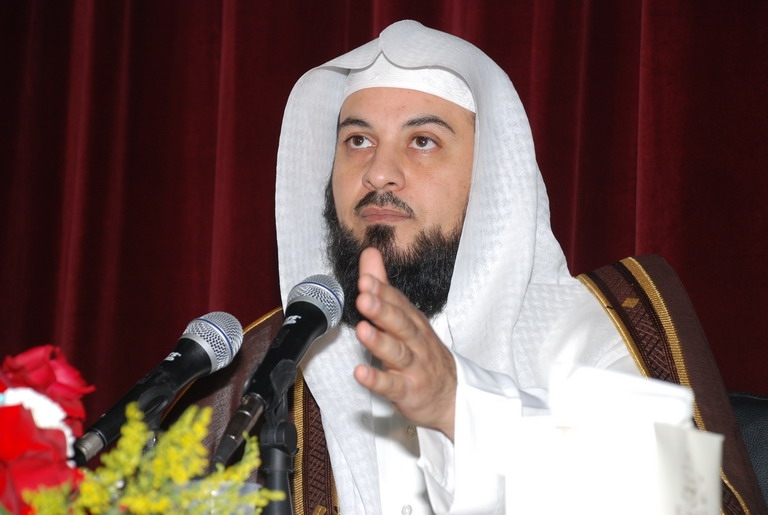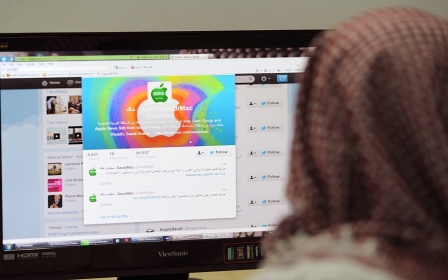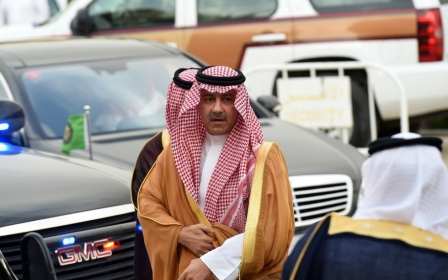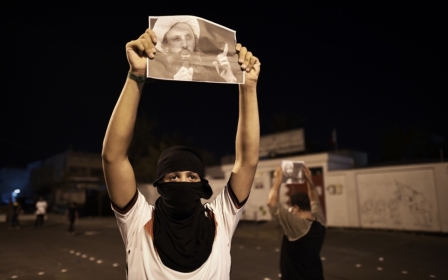Anger in Saudi Arabia at arrest of popular religious preacher Mohammed al-Arefe

Confirmation the prominent religious preacher Mohammed al-Arefe has been arrested in Saudi Arabia sparked a wave of Twitter anger among his supporters Tuesday.
Alrefe has almost ten million followers on Twitter, making his account 94th most popular in the world.
The conservative cleric has regularly courted controversy – he was barred from entering Switzerland last year for alleged anti-Semitic statements, has publicly opposed women’s right to drive in Saudi Arabia, and reportedly said Shiite Muslims are “nonbelievers who must be killed”.
Rumours have swirled on Twitter in recent weeks about Arefe’s supposed arrest, with his family reportedly having told local media on 14 October he had been summoned by the public prosecutor and detained.
It was on Monday, however, when Twitter exploded after another prominent cleric appeared to confirm the arrest.
Salman al-Awda, who himself has more than five million followers, called for Arefe to be released on a hashtag that has since seen more than 85,000 tweets sent out in less than 24 hours.
Translation: “May he be released swiftly and returned to his family and loved ones. May what he has suffered ennoble him. Thank God for every eventuality. #ArifiBehindBars”
Several Arabic language news sites have reported Arefe was detained because of a tweet on 4 October in which he criticised a train linking religious sites in Saudi Arabia as “the worst in the world”.
Translation: “The train linking Sunni holy sites is the worse in the world. The complaints of pilgrims have been numerous. It is not punctual, it constantly stops for no reason, crowd control is neglected and the lifts and escalators do not work.”
The critical tweet came among a series of others praising authorities for their handling of the Hajj season, in line with Arefe’s longstanding close relationship with the government.
Translation: “The efforts of the security services, and their ministry, as well as the emirate of Mecca and its ruler to serve noble guests and protect are praiseworthy. We have seen these efforts and called for them.”
It is not the first time Arefe has drawn the ire of authorities and been detained. Human rights activists said the government is wary of his huge following and are keen to manage his activities from time to time.
“This tweet was not serious criticism but the government is worried – from their point of view nine million people will read the tweet and could become critical of them,” said Yahya Assiri, head of the Saudi-run ALQST human rights group. “He has been arrested several times in the past, usually for a few days, then he is released after signing an apology.”
“Maybe that’s what will happen again this time, although you can never be sure.”
Assiri said Arefe’s following is mostly happy with the government and explained the cleric has shunned previous support from political dissidents when detained.
“Opposition figures in London criticised his last arrest and called for his release but when he was freed Arefe said he did not want their support, claiming it would only serve to drive a wedge between himself and the government.”
While it is expected Arefe will be released without charge analysts warned the consequences could be severe were he to remain detained.
“The key issue here is whether Arefe is officially charged with an offence, or released as he has been on previous occasions – if he were to face a trial it would likely cause anger among his many followers,” said Andrew Hammond, senior fellow for the European Council on Foreign Relations Middle East and North Africa programme.
“The real worry for Saudi authorities is if he were to begin advocating for electoral politics – as Salman al-Awda now does – that would be of real concern for them given his widespread appeal in the kingdom.”
57-year-old Salman al-Awda became popular in the early 1990s as a conservative religious cleric, but has since voiced his support for democracy and gained notoriety for his criticism of authorities in the Gulf State.
“The gulf governments are fighting Arab democracy because they fear it will come here,” Awda is reported as having said by the New York Times. “If it continues on this path it will lose its own people and invite disaster.”
Authorities in Saudi Arabia tolerate no dissent and regularly lockup anyone who calls for political reform. The monarchy supported last year’s popularly backed military coup in Egypt and have since labelled the Muslim Brotherhood a terrorist organisation.
On Tuesday Twitter users widely criticised the decision to arrest Mohammed al-Arefe, with vast numbers calling for his immediate release.
Translation: “#ArifiBehindBars God is sufficient and He is our guardian. The people of religion, who are in the right, are in prison and the morally bankrupt are outside! Let them be freed.
Saudi authorities had not released any statements about Arefe’s arrest at the time of publication.
Stay informed with MEE's newsletters
Sign up to get the latest alerts, insights and analysis, starting with Turkey Unpacked
Middle East Eye delivers independent and unrivalled coverage and analysis of the Middle East, North Africa and beyond. To learn more about republishing this content and the associated fees, please fill out this form. More about MEE can be found here.




